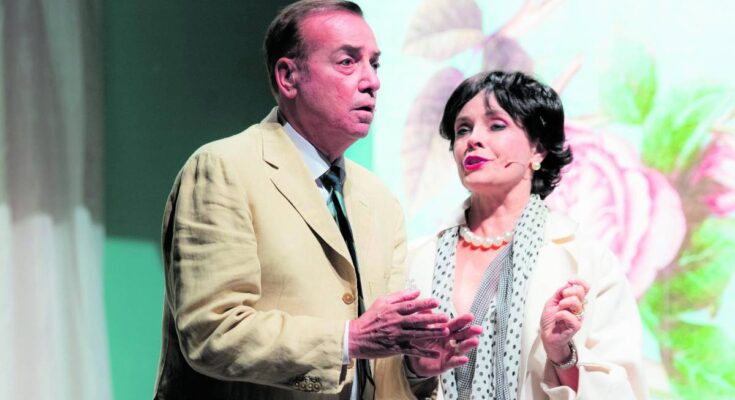“Pure black comedy.” This is how Massimo Ghini defines “Il Vedovo”, an adaptation of the cult comedy film of the same name directed by Dino Risi in 1959, on stage at the Teatro Manzoni from tonight until November 23. And there would indeed be “black” mechanisms with an English flavor (real deaths, premeditated uxoricides) in the story directed and interpreted by Ghini himself, if not for the fact that the famous film with Alberto Sordi and Franca Valeri as attractive protagonists is, continues the Roman actor and director, “a very noble example of Italian comedy which, soon after, would also give rise to The Great War and The Overtaking, stories rich in comedy and irony, with a tragic ending that will leave you speechless.” Therefore, one hundred percent Italian “because in the years of economic boom, our country had ideas, worthy screenwriters, there was productive courage and stories like this flourished, of uncompromising social disruption and satire. Today? If we have to talk about boom, it is the sound of social disintegration and disinterest. So much so that to bring society and especially young people to the theater we need classics taken from cinema like this and perhaps a face like mine, of an actor who has made one hundred and fifty films but is remembered by young people because of the six cine-panettone films that were made”.
For Ghini, the challenge was of course to take on the role played by Sordi, namely that of the Roman commander and engineer Alberto Nardi, a scoundrel and not very good at business, supported by his much more intelligent and shrewd wife Elvira Almiraghi (here played by Galatea Ranzi), a successful Milanese industrialist who tolerated him and endlessly nicknamed him “the little idiot”. When he thought he had (fortunately) become a widower, Nardi made a bitter discovery: the woman was fine and, therefore, the “deceived widower” would decide to get rid of her with the help of some cynical and not very capable partners in crime like him (in the cast Pier Luigi Misasi, Tony Rucco, Luca Scapparone, the two sons of art Leonardo Ghini and Diego Sebastian Misasi, finally the young debutante Giulia Piermarini in the role of Nardi’s naive “platonic” lover, Joy).
Massimo Ghini is a brilliant actor (with a strong dramatic background that he wanted to recall by saying that “I came to Manzoni for the first time in 1982, I was a child in Zeffirelli’s Maria Stuarda, produced by Manzoni himself, in which two stars like Rossella Falk and Valentina Cortese shone”), a man on set and stage who knew how, even in comedies, the soul is everything: “Italy in this story is an agricultural country that has just emerged after the war, but the most enterprising can build things. The middle class takes up space and prosperity What is the analogy with today’s more static society?
Fidelity to the text was strict but – Massimo Ghini wanted to point out, “I did not dare imitate or copy Alberto Sordi. There were colleagues like Max Tortora who were very good at imitating him. I limited myself to evoking the national Albertone in just two famous lines”.



